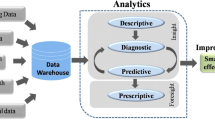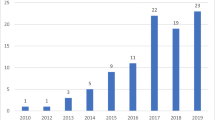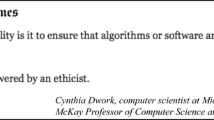Abstract
Conflicts of interest over personal data arise from the variety of legal subjects involved and the value of personal data in today’s information society. This article attempts to resolve such conflicts of interest by examining the possibility of allocating data rights which balance competing interests. It suggests that the allocation of personal data rights should follow certain rules to ensure that the interests of relevant data subjects are protected. By examining the reasons for conflicts of interest over personal data, as well as the subjects and substance of such conflicts, the article puts forward an appropriate approach for allocating personal data rights by balancing the interests of different data subjects. For source data subjects, personal data rights are allocated, to protect personal information and data property interests; for data controllers, data property rights are allocated to protect their data property interests when they make data valuable, meanwhile liabilities are allocated to data controller, in case of infringing on other subjects’ interests; for data supervisors (mostly the government), allocating the right to protect or make use of data on behalf of public interests and the power of supervising data use industry; for the data users, they are allocated data property rights with the consents of source data subjects and data controllers when make use of data.
Similar content being viewed by others
Notes
The introduction to the company on its website reads as follows: “As a professional AI data service provider, Datatang is dedicated to providing data collection and data product services for global AI enterprises through three service modes: massive AI data sets with its own copyrighted [massive shared copyright AI datasets], AI data customization service and data annotation platform.” See: https://en. datatang. com/en/index. (visited on September 27, 2019).
RadioShack Corporation Filed for Bankruptcy in 2015, Case # 15–10,197, filed in the U. S. Bankruptcy Court for the District of Delaware. See further Attorney General Laxalt Joins Objection to Sale of Consumers’ Personal Data in RadioShack Bankruptcy Case. Targeted News Service; Washington, D. C., 26 Mar 2015.
Heck and Karl Larenz admitted that the essence of the theory of interest measurement is conflict resolution. Heck believed that the highest task of the law is to balance interests. Larenz considered that in order to reconstruct the legal order after a conflict between two rights, it is necessary for one right to give way to the other or for concessions to be made to both rights to achieve a balance. See Heck’s lecture at Frankfurt University in 1932 and Larenz’s masterpiece, Methodenlehre.
References
Attorney General Laxalt Joins Objection to Sale of Consumers' Personal Data in RadioShack Bankruptcy Case. March 26, 2015. Targeted News Service. Washington, D. C.
Anonymous. 1981. Conflicts of Interest in the legal profession. Harvard Law Review 94(6).
Bell, Daniel. 1976. The Coming of Post-Industrial Society: A Venture in Social Forecasting. New York: Basic Books.
Cate, Fred. 2008. Government data mining: the need for a legal framework. Harvard Civil Rights - Civil Liberties Law Review 43 (2): 435–489.
Dragich, Martha J. 2001. State constitutional restrictions on legislative procedure: rethinking the analysis of original purpose, single subject, and clear title challenges. Harvard Journal on Legislation 38(1).
European Union. 2016. The General Data Protection Regulation (EU). 2016/679. https://gdpr-info.eu/.
Friedman, Lawrence E. 1985. A History of American Law, 2nd ed. New York: Simon & Schuster.
Fuster, G.G. 2014. How uninformed is the average data subject a quest for benchmarks in EU personal data protection. IDP: Revista De Internet Derecho y Política 19 (2): 92–104.
Gardner, John. 2017. Dagan and dorfman on the value of private law. Columbia Law Review 117 (6): 179–201.
Gelles, Sean. 2016. The commercial value of data. Econtent 39 (7): 9–9.
Gerritsen, Richard. 2019. Property companies must embrace the power of data: Companies must begin gathering, processing and analysing more data if they wish to remain relevant. Property Week 86 (8): 14–15.
Gladstone, Julia Alpert. 2001. Data mines and battlefields: Looking at financial aggregators to understand the legal boundaries and ownership rights in the use of personal data. The John Marshall Journal of Computer & Information Law 19 (2): 313–320.
Gourevitch, Victor. 1975. Rawls on justice. The Review of Metaphysics 28 (3): 104–111.
Holland, Kenneth M. 1980. Socrates—the first criminal justice educator. Criminal Justice Review 5 (2): 1–4.
IT Times (China), May 4, 2018, Edition 009.
Jones, William P. 2015. The sanctity of private property: the civil rights act and the limitations of American liberalism. New Labor Forum 24 (1): 62–68.
Jurich, James. 2012. International approaches to conflicts of interest in public procurement: a comparative review. European Procurement & Public Private Partnership Law Review 7 (4): 151–153.
Karst, Kenneth L. 1975. Equality as a central principle in the first amendment. The University of Chicago Law Review 43 (1): 20–68.
Kennedy, Duncan. 2000. From the will theory to the principle of private autonomy: lon fuller’s “consideration and form.” Columbia Law Review 100 (1): 94–175.
Kim, Dae-In. 2018. Protection of public interest in the United States’ public private partnership (PPP) law. Kyung Hee Law Journal 53 (2): 8–10.
Kitagawa, Shintaro. 1995. Japanese Civil Law system. Translated by Li Yiduo and Qiu Jingchun. Beijing: Science Press.
Kramer, Matthew H. 2010. Refining the interest theory of rights. American Journal of Jurisprudence 55: 31–39.
Kugler, Logan. 2018. The war over the value of personal data. Communications of the ACM 61 (2): 17–19.
Lambert, Paul. 2016. The Data Protection Officer: Profession, Rules, and Role.
Liang, Brian A. 2000. Fraud and abuse in audiology: the law of conflict of interest. Seminars in Hearing 21 (1): 41–62.
Little, Andrew T., and Thomas Zeitzoff. 2017. A Bargaining Theory of Conflict with Evolutionary Preferences. International Organization 71 (3): 1–35.
Lloyd, Ian. 2018. Access to “joint” personal data of several data subjects. Computer Law Review International 19 (6): 175–177.
Lnenicka, Martin, and Jitka Komarkova. 2019. Developing a government enterprise architecture framework to support the requirements of big and open linked data with the use of cloud computing. International Journal of Information Management 46: 124–141.
Mao, Mark, Ronald Raether Jr., Yanni Lin, Sheila Pham, Jonathan Yee, Sadia Mirza, Julia Hoffmann, Molly DiRago, Melanie Witte, and Julie Hoffmeister. 2018. Data privacy: the current legal landscape. Annual Compendium, Ver. 1: 1.
Mejía, Andrea. 2011. Rawls, From Justice to Right as Political Subject. Ideas y Valores 60 (147): 147–148.
Miron, Anca M., Nyla R. Branscombe, and Monica Biernat. 2010. Motivated shifting of justice standards. Personality and Social Psychology Bulletin 36 (6): 768–779.
Murray, Edward J., and Mitchell M. Berkun. 1955. Displacement as a function of conflict. The Journal of Abnormal and Social Psychology 51 (1): 47–56.
Perelman, Jeremy. 2005. The way ahead? Access-to-justice public interest lawyering and the right to legal aid in South Africa: the Nkuzi case (Land Claims Court decision in Nkuzi Development Ass’n v. South Africa). Stanford Journal of International Law 41 (2): 357–400.
Pound, Roscoe. 1959. An Introduction to the Philosophy of Law. New Haven: Yale University Press.
Romanova, Elena. 2018. Public interest to personal data: online databases of Russian archives. Atlanti 28 (2): 26–28.
Stevens, Tim. 2018. Cyberweapons: power and the governance of the invisible. International Politics 55 (3–4): 487–490.
Štitilis, Darius, and Marius Laurinaitis. 2017. Treatment of biometrically processed personal data: problem of uniform practice under EU personal data protection law. Computer Law & Security Review: THe International Journal of Technology Law and Practice 33 (5): 618–628.
Tabone, John. 2009. The value of interest. CA Magazine 142 (7): 7–7.
von Jhering, Rudolf. 1877–1883. Der Zweck im Recht (vol. 1). Leipzig: Breitkopf & Hartel.
Weed, Ronald. 2013. Public reason and the sources of deliberative conflict. European Journal of Political Theory 12 (3): 305–315.
Weiss, Roslyn. 1985. Socrates and protagoras on justice and holiness. Phoenix 39 (4): 333–334.
Whitman, James Q. 2004. The two western cultures of privacy: dignity versus liberty. Yale Law Journal 113 (6): 1151–1221.
Wilson, James Lindley. 2011. Deliberation, democracy, and the rule of reason in aristotle’s politics. American Political Science Review 105 (2): 259–274.
Wang D. 2019. Development of principle of Public Order and Good Custom in Tort Law. Law Review, pp 99–112
Yee, Woo Pei. 2001. Protecting parties’ reasonable expectations: a general principle of good faith. Oxford University Commonwealth Law Journal 1 (2): 195–229.
Yu, Xiaolan, and Yun Zhao. 2019. Dualism in data protection: Balancing the right to personal data and the data property right. Computer Law & Security Review: THe International Journal of Technology Law and Practice. https://doi.org/10.1016/j.clsr.2019.04.001.
Zwitter, Andrej. 2014. Big data ethics. Big Data Society 1 (2): 1–6.
Author information
Authors and Affiliations
Corresponding author
Ethics declarations
Conflict of interest
The author is grateful to the 67th Ph.D. Project “Research on the Conflict of Shareholders and the Governance of Private Law in the Public Use of Government Data” (Project No. 2020M671083). It is also the ongoing research result of the Sub-topic “Research on Technology Governance of Intellectual Property in Digital Cyberspace” of the National Social Science Foundation’s Major Project “Research on Intellectual Property Governance System in Digital Cyberspace” (19 ZDA164).
Rights and permissions
About this article
Cite this article
Yu, X. Allocating Personal Data Rights: Toward Resolving Conflicts of Interest over Personal Data. Fudan J. Hum. Soc. Sci. 14, 549–563 (2021). https://doi.org/10.1007/s40647-021-00330-w
Received:
Accepted:
Published:
Issue Date:
DOI: https://doi.org/10.1007/s40647-021-00330-w




